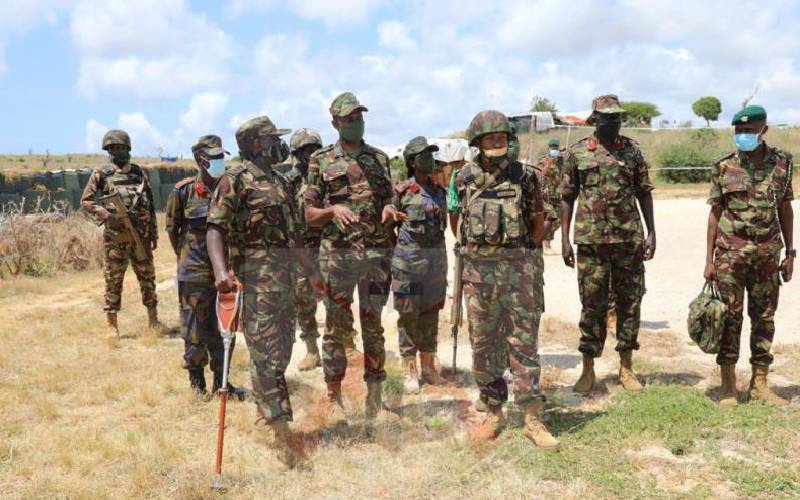×
The Standard e-Paper
Fearless, Trusted News

CDF Gen Robert Kibochi when he visited KDF troops operating in Kuday, Sarira, Sankuri, Baure and Manda. [Photo, Courtesy]
President Uhuru Kenyatta and his DRC counterpart Felix Tshisekedi have signed a deal on defence cooperation to promote peace, security and stability.